TPP - Chapter 04 - Textile and apparel goods
Chapter 04 of the TPP Agreement stipulates the rules and measures related to textiles and apparel of the parties participating in the TPP Agreement.
CHAPTER 4
TEXTILES AND APPAREL
Article 4.1: Definitions
For the purposes of this Chapter:
textile articles refer to items listed in Appendix A (Textile Products - Specific Rules of Origin).
violation of customs laws means actions taken to evade the laws or regulations of a Party related to the export or import of textile products under the Agreement between the Parties, especially those violating customs laws or regulations on the restriction or prohibition of import or export, tax evasion, document fraud related to import or export of goods, fraud, or smuggling.
transition period is the period starting when the Agreement takes effect between the Parties until 5 years after the date the importing Party abolishes tariffs on goods from the exporting Party under this Agreement.
Article 4.2: Rules of Origin and Related Matters
Application of Chapter 4
- Unless otherwise provided in this Chapter, including the Appendices attached, Chapter 3 (Rules of Origin and Origin Procedures) applies to textile articles.
De Minimis
-
If a textile article in Appendix A (Textile Products - Specific Rules of Origin) is classified outside Chapters 61 to 63 and does not qualify as originating goods because the materials used to produce these goods do not undergo tariff classification changes specified in Appendix A (Textile Products - Specific Rules of Origin), such textile article shall still be considered as originating if the total weight of all such materials does not exceed 10% of the total weight of the goods.
-
If a textile article within Chapters 61 to 63 does not qualify as originating goods because the yarns used to produce the components of the goods that determine the tariff classification of the goods do not undergo tariff classification changes specified in Appendix A (Textile Products - Specific Rules of Origin), such textile article shall be considered as originating if the total weight of all such yarns does not exceed 10% of the total weight of the components.
-
Notwithstanding the provisions of paragraphs 2 and 3, if an article listed in paragraph 2 contains elastomeric yarn or an article listed in paragraph 3 contains elastomeric yarn in the component that determines the tariff classification of the article, the article shall be considered as originating if such yarn is wholly produced within the territory of one or more of the Parties.
Provisions on Sets
-
Notwithstanding the rules of origin for textiles in Appendix A (Textile Products - Specific Rules of Origin), textile articles classified as sets for retail sale according to Rule 3 of the General Rules for the Interpretation of the Harmonized System shall not be considered originating unless each item in the set qualifies as originating goods or the total value of non-originating goods in the set does not exceed 10% of the value of the set.
-
For the purposes of paragraph 5:
(a) the value of non-originating goods in a set shall be calculated similarly to the value of non-originating materials in Chapter 3 (Rules of Origin and Origin Procedures); and
(b) the value of the set shall be calculated similarly to the value of goods in Chapter 3 (Rules of Origin and Origin Procedures).
Provisions on Short Supply List
-
Each Party shall stipulate that, in determining whether a good is originating under Chapter 3, Article 2(c), a material listed in the Short Supply List attached to Appendix A (Textile Products - Specific Rules of Origin) shall be deemed originating if the material meets the conditions, including end-user requirements, stipulated in the Short Supply List attached to Appendix A (Textile Products - Specific Rules of Origin).
-
When an article is declared as originating based on the use of a material listed in the Short Supply List attached to Appendix A (Textile Products - Specific Rules of Origin), the importing Party has the right to request the code number or description of the material in the import documentation (such as the certificate of origin) as stipulated in the Short Supply List attached to Appendix A (Textile Products - Specific Rules of Origin).
-
Non-originating materials marked as “temporary” in the Short Supply List attached to Appendix A (Textile Products - Specific Rules of Origin) may be deemed originating under paragraph 7 within 5 years from the date this Agreement takes effect.
Provisions on Certain Handmade or Traditional Articles
- An importing Party has the right to determine the eligibility of textile articles from an exporting Party for duty-free or preferential tariff treatment under a bilateral arrangement between the Parties in the following cases:
(a) hand-woven fabrics constituting a cottage industry;(b) hand-printed fabrics with patterns created using wax-resistance techniques;(c) cottage industry goods made from hand-woven or hand-printed fabrics; or(d) traditional handmade articles,
provided that all the requirements agreed by the importing and exporting Parties for these articles are satisfied.
Article 4.3: Emergency Action
- According to this Article, if the result of the reduction or elimination of tariffs stipulated in this Agreement results in an increase of imports of a textile article benefiting from preferential tariff treatment into the territory of a Party, causing serious damage or threat of serious damage to the domestic industry producing similar or directly competitive articles, the importing Party has the right, within the necessary scope and time, to prevent or remedy the damage and facilitate adjustment, to undertake emergency actions as defined in paragraph 6, including increasing tariffs on the article from the exporting Party to a level not exceeding either of the following:
(a) the most-favored-nation (MFN) tariff rate in effect at the time of the action; and(b) the most-favored-nation tariff rate in effect on the day before this Agreement becomes effective for that Party.
-
This Article does not limit the rights and obligations of a Party under Article XIX of the GATT 1994, the WTO Agreement on Safeguards, or Chapter 6 (Trade Remedies).
-
In determining serious damage or the threat of serious damage, the importing Party:
(a) must consider the impact of a rise in imports from the exporting Party that benefits from preferential tariff treatment under the Agreement on a specific industry, reflected by changes in relevant economic variables such as production, productivity, capacity utilization, inventories, market share, exports, wages, employment, domestic prices, profits, and investments, none of which should be decisive on its own or in conjunction with other factors;
(b) should not consider technological changes or consumption trends in the importing Party as supportive factors in determining serious damage or the threat of serious damage.
-
The importing Party may only undertake emergency action under this Article after announcing procedures outlining the criteria for determining serious damage, and after its competent authority conducts an investigation. An investigation shall use data based on the factors described in point 3(a) demonstrating serious damage or the threat resulting from increased imports of related products from the implementation of this Agreement.
-
The importing Party must promptly notify the exporting Party/Parties in writing about the investigation specified in paragraph 4, as well as its intention to undertake emergency action and consult with the exporting Party/Parties upon request. The importing Party must provide the exporting Party with details of the intended emergency action. The Parties shall promptly commence consultations, and unless otherwise decided, must conclude consultations within 60 days from the date of receipt of the request. Upon the completion of consultations, the importing Party must notify the exporting Party of its decisions. If the decision is to apply a safeguard measure, the notification must include the details of the measure and its effective date.
-
The following conditions and limitations apply to emergency actions taken under this Article:
(a) the emergency action shall not exceed two years and may be extended for a maximum of two years;(b) emergency action against an article shall not be taken beyond the transition period;(c) the importing Party may not undertake emergency action against a specific article from one or more Parties more than once; and(d) upon termination of emergency action, the importing Party shall grant the article preferential tariff treatment that the article would have otherwise enjoyed during the time of the emergency action.
-
The Party undertaking an emergency action under this Article shall provide the exporting Party/Parties whose goods are subject to the emergency action with a form of trade liberalization compensation agreed upon by both Parties in the form of preferential tariffs with trade impacts equivalent to the value of additional tariffs arising from the emergency action. The preferential tariffs shall be limited to textiles unless otherwise agreed. If the Parties fail to reach an agreement on compensation within 60 days or a longer period agreed by the Parties concerned, the Party whose goods are subject to emergency action is entitled to apply a tariff measure with trade impacts equivalent to those of the emergency action under this Article. This tariff measure may be applied to any goods from the Party implementing the emergency action. The implementation of the tariff measure shall be limited to the minimum period necessary to achieve equivalent basic trade impacts. The obligation of trade compensation by the importing Party and the right to implement a tariff measure by the exporting Party shall terminate when the emergency action ends.
-
A Party shall not undertake or maintain an emergency action under this Article against a textile article that is subject to, or becomes subject to, a transitional safeguard measure under Chapter 6 (Trade Remedies), or a safeguard measure undertaken by a Party under Article XIX of the GATT 1994 or the WTO Agreement on Safeguards.
-
Investigations stipulated in this Article shall be undertaken based on procedures enacted by each Party. When this Agreement takes effect or before an investigation, each Party must notify other Parties of these procedures.
-
Each Party must provide a report on actions to other Parties in the year an emergency action is taken or maintained.
Article 4.4: Cooperation
-
Each Party, in accordance with its laws and regulations, must cooperate with other Parties in enforcing or assisting in enforcing measures related to violations of customs laws in textile trade between the Parties, including ensuring the accuracy of preferential tariff claims under this Agreement.
-
Each Party must take appropriate measures, which may include legislative, administrative, judicial, or other actions, to:
(a) enforce laws, regulations, and procedures related to violations of customs laws, and
(b) cooperate with the importing Party in enforcing its laws and procedures related to the prevention of violations of customs laws.
- For the purposes of paragraph 2, "appropriate measures" are measures taken by a Party in accordance with its laws, regulations, and procedures, such as:
(a) providing legal authority to government officers to fulfill obligations under this Chapter;
(b) enabling its law enforcement officers to identify and handle customs law violations;
(c) enacting or maintaining criminal, civil, or administrative sanctions to deter customs law violations;
(d) taking appropriate enforcement actions, upon request from another Party including relevant facts, when there is suspicion of customs law violations in the territory of the requested Party concerning textile articles, including within the free trade zones of the requested Party; and
(e) cooperating with another Party, upon request, to establish relevant facts related to customs law violations in the territory of the requested Party concerning textile articles, including within the free trade zones of the requested Party.
-
A Party has the right to request information from a Party where relevant facts indicate that a customs law violation has occurred, is occurring, or is likely to occur, such as previous evidence.
-
Any request under paragraph 4 must be made in writing, electronically, or by other means and must include a brief statement of the matter, a request for cooperation, relevant information on the customs law violation, and sufficient details for the requested Party to respond in accordance with its laws and regulations.
-
To enhance cooperative efforts under this Article among the Parties to prevent and handle customs law violations, the Party receiving a request under paragraph 4, in accordance with its laws, regulations, and procedures, including those related to confidentiality specified in Article 9.4, must provide the requesting Party with information on the existence of an importer, exporter, or producer, goods of an importer, exporter, or producer, or other matters related to this Chapter after receiving the request as per paragraph 5. The information may include available correspondence, reports, bills of lading, invoices, purchase orders, or other information related to the enforcement of laws or regulations related to the request.
-
A Party may provide information requested under this Article in writing or electronically.
-
Each Party must establish or maintain contact points to facilitate cooperation under this Chapter. Each Party must notify other Parties of its contact points when this Agreement takes effect and must promptly notify other Parties of any subsequent changes.
Article 4.5: Monitoring
-
Each Party must establish or maintain programs or activities to identify and handle customs law violations related to textile articles, which may include activities to ensure the accuracy of preferential tariff claims for textile and apparel goods under this Agreement.
-
Through these programs or activities, the Parties may collect or share information related to textile articles for risk management purposes.
-
In addition to paragraphs 1 and 2, some Parties may have additional bilateral agreements.Article 4.6: Verification
-
The importing Party may conduct verification of a textile product as per Articles 3.27.1(a), 3.27.1(b), or 3.27.1(e) (Verification) and its relevant procedures to verify if a product meets the conditions for preferential tariff treatment, or request a physical inspection as stipulated in this Article.
-
The importing Party has the right to request a physical inspection from an exporter or producer of textile products under this Article to verify:
(a) whether a textile product meets the conditions for preferential tariff treatment under this Agreement; or
(b) whether a customs violation has occurred or is occurring.
- During a physical inspection under this Article, the importing Party has the right to request the provision of:
(a) records and related basis for the claim of preferential tariff treatment; or
(b) records and related basis for verifying customs violations.
- When a physical inspection is required per Clause 2, the importing Party should notify the Host Party no later than 20 days before the inspection with the following information:
(a) the proposed inspection date;
(b) a detailed number of exporters and producers subject to the physical inspection to facilitate support, without needing to name the specific exporters or producers;
(c) whether the Host Party’s assistance is required and in what form (if any);
(d) the customs violations to be verified as per Clause 2(b), if appropriate, including any relevant factual information available at the time of notification regarding specific violations, which may include previous information; and
(e) whether the importer has claimed preferential tariff treatment.
-
Upon receiving a request for physical inspection under Clause 2, the Host Party may ask for information from the importing Party to plan for the inspection, such as logistics or support tasks.
-
When a physical inspection is required as per Clause 2, the importing Party must provide the Host Party with a list of names and addresses of the exporters or producers subject to the physical inspection as soon as possible and prior to the first inspection date at the exporter’s or producer’s premises as per this Article.
-
When the importing Party needs to conduct a physical inspection under Clause 2:
(a) Officials from the Host Party may escort the importers in the inspection.
(b) Officials from the Host Party may, per its laws and regulations, upon request by the importing Party or proactively support the importing Party in the physical inspection and provide relevant information necessary to conduct the physical inspection to the extent possible.
(c) The importing Party and the Host Party must limit communication about the physical inspection to relevant state officials and must not notify the exporter or producer outside the government of the Host Party before the inspection or provide any unpublished verification or enforcement information which could reduce the effectiveness of the inspection.
(d) The importing Party must propose to the exporter or producer to allow access to relevant records or premises no later than the time of inspection. Except in cases where prior notice would reduce the effectiveness of the inspection, the importing Party must provide prior notice to request permission.
(2) If the exporter or producer of textile products does not allow access, no physical inspection will be conducted. The importing Party must consider another date and the feasibility of the exporter’s or producer’s staff or premises.
- Upon completing a physical inspection under Clause 2, the importing Party must:
(a) notify the initial conclusions to the Host Party as required.
(b) provide the Host Party with a written report on the results of the physical inspection within 90 days from the date of receiving a written request from the Host Party, including conclusions. If the report is not in English, the importing Party must provide an English translation upon the Host Party’s request.
(c) provide the exporter or producer with a written report on the results of the inspection and conclusions within 90 days from the date of receiving a written request. This may be a report prepared under point (b) with appropriate changes. The importing Party is responsible for informing the exporter or producer of the right to request this report. If the report is not in English, the importing Party must provide an English translation upon the request of that exporter or producer.
-
If the importing Party conducts a physical inspection as per Clause 2 and intends to deny preferential tariff treatment for a product, before denying such treatment, the importing Party must provide a 30-day period to the importer and the exporter or producer who has provided direct information to the importing Party to submit additional information proving the claim for preferential tariff treatment. In cases where there was no prior notice under Clause 7(d), the importer, exporter, or producer has the right to request an additional 30-day extension.
-
The importing Party shall not deny a claim for preferential tariff treatment solely because the Host Party did not provide assistance or information as requested under this Article.
-
While verification is being carried out under Article 6, the importing Party has the right to take appropriate measures as per its laws and regulations, including suspending or denying the application of preferential tariff treatment for textile products of the exporter or producer being verified.
-
If verification of identical goods by a Party reveals that the statements made by the exporter or producer that imported goods meet the conditions for preferential tariff treatment are likely to be false or unsubstantiated, that Party has the right not to apply preferential tariff treatment to textile products imported, exported, or produced by that entity until that entity demonstrates to the importing Party that identical goods meet the conditions for preferential tariff treatment. Within the scope of this Clause, identical goods are those identical in all respects according to a specific rule of origin aimed at determining the qualifying origin status of the goods.
Article 4.7: Decision Making
The importing Party has the right to deny a claim for preferential tariff treatment for a textile product:
(a) for reasons stated in Article 3.28.2 (Decision on the claim for preferential tariff treatment);
(b) if, according to the results of verification stipulated in this Chapter, the Party does not receive enough information to determine whether the goods meet the qualifying origin conditions; or
(c) if, according to the results of verification stipulated in this Chapter, access or permission to access is denied, the importing Party cannot complete the physical inspection on the proposed date, and the exporter or producer could not agree with the importing Party on a different inspection date, or the exporter or producer did not allow access to relevant records or premises during the physical inspection.
Article 4.8: Committee on Textile Products
-
The Parties agree to establish a Committee on Textile Products (hereinafter referred to as the Committee) consisting of representatives from each Party.
-
The Committee on Textile Products shall meet at least once a year during the effective period of this Agreement and as determined by the Parties upon the Committee’s request. The Committee shall meet at venues and times as decided by the Parties. Meetings can be in-person or through means decided by the Parties.
-
The Committee has the authority to review any issue arising under this Chapter, and the Committee’s functions shall include reviewing the implementation of this Chapter, consulting on technical or significant difficulties that may arise under this Chapter, and discussing measures to enhance effective cooperation under this Chapter.
-
Apart from Committee discussions, a Party may request to discuss issues under this Chapter with one or more other Parties relating to such issues to address matters believed to arise from the implementation of this Chapter.
-
Unless otherwise agreed, Parties requesting discussions must hold consultations as per Clause 4 within 30 days of receiving a written request from a Party and strive to conclude within 90 days of receiving a written request.
-
Discussions under this Article must be kept confidential and shall not prejudice any Party's rights in future litigation.
Article 4.9: Confidentiality
-
Each Party must maintain the confidentiality of information collected under this Chapter and protect it from disclosure as such disclosure may harm the competitive position of the information provider.
-
If one Party provides confidential information to another Party under this Chapter, the receiving Party is responsible for maintaining the confidentiality of the information.
-
The providing Party has the right to request that the receiving Party establishes a written guarantee for maintaining the confidentiality of such information, and the information shall only be used for the purposes stipulated in the request made by the receiving Party, and shall not be disclosed without the providing Party’s or the initial provider's permission.
-
A Party has the right to refuse to provide information as requested by another Party if the latter does not comply with Clauses 1 to 3.
-
Each Party must adopt or maintain procedures to prevent the unauthorized disclosure of confidential information provided according to customs law and other legal regulations, or collected under this Chapter, including information whose disclosure may harm the competitive position of the information provider.
1 For further clarity, Clause 4 does not require materials from the List of Short Supply to be made entirely from elastomeric yarn originating wholly within the territory of one or more Parties.
2 Within the scope of Clause 4, wholly originating means all production and finishing processes, from extruding yarn, strip, film, or sheet, including drawing to fully orient yarn, or slitting film or sheet into strip, or spinning fiber until finished or braided yarn.
3 Within the scope of this Article, information collected under this Article must be used to ensure effective implementation of this Chapter. A Party shall not apply these procedures to collect information for other purposes.
4 The importing Party must obtain the permission of the authorized person for conducting a physical inspection at the facility.
TABLE OF CONTENTS
TPP - Chapter 01 - General Provisions and Definitions
TPP - Chapter 02 - National Treatment and Market Access for Goods
TPP - Chapter 03 - Rules of Origin and Origin Procedures
TPP - Chapter 04 - Textile Products
TPP - Chapter 05 - Customs Administration and Trade Facilitation
TPP - Chapter 06 - Trade Remedies
TPP - Chapter 07 - Sanitary and Phytosanitary Measures
TPP - Chapter 08 - Technical Barriers to Trade
TPP - Chapter 10 - Cross-Border Trade in Services
TPP - Chapter 11 - Financial Services
TPP - Chapter 12 - Temporary Entry for Businesspersons
TPP - Chapter 13 - Telecommunications
TPP - Chapter 14 - Electronic Commerce
TPP - Chapter 15 - Government Procurement
TPP - Chapter 16 - Competition Policy
TPP - Chapter 17 - State-Owned Enterprises and Designated Monopolies
TPP - Chapter 18 - Intellectual Property
TPP - Chapter 20 - Environment
TPP - Chapter 21 - Cooperation and Capacity Building
TPP - Chapter 22 - Competitiveness and Business Facilitation
TPP - Chapter 23 - Development
TPP - Chapter 24 - Small and Medium Enterprises
TPP - Chapter 25 - Regulatory Coherence
TPP - Chapter 26 - Transparency and Anti-Corruption
TPP - Chapter 27 - Administrative and Institutional Provisions
TPP - Chapter 28 - Dispute Settlement
TPP - Chapter 29 - Exceptions and General Provisions
- Key word:
- Textile and apparel goods
- apparel goods
- Textile
- TPP
- Cases of land rent exemption and reduction under the latest regulations in Vietnam
- Economic infrastructure and social infrastructure system in Thu Duc City, Ho Chi Minh City
- Regulations on ordination with foreign elements in religious organizations in Vietnam
- Increase land compensation prices in Vietnam from January 1, 2026
- Determination of land compensation levels for damage during land requisition process in Vietnam
- Who is permitted to purchase social housing according to latest regulations in Vietnam?
-
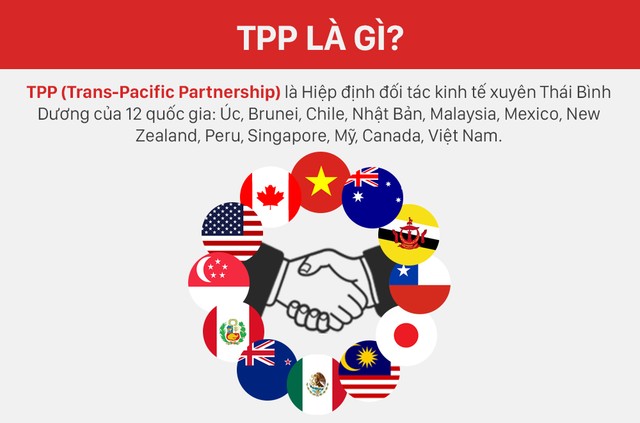
- TPP - Chapter 01 - General Provisions and Definitions
- 12:10, 11/07/2024
-
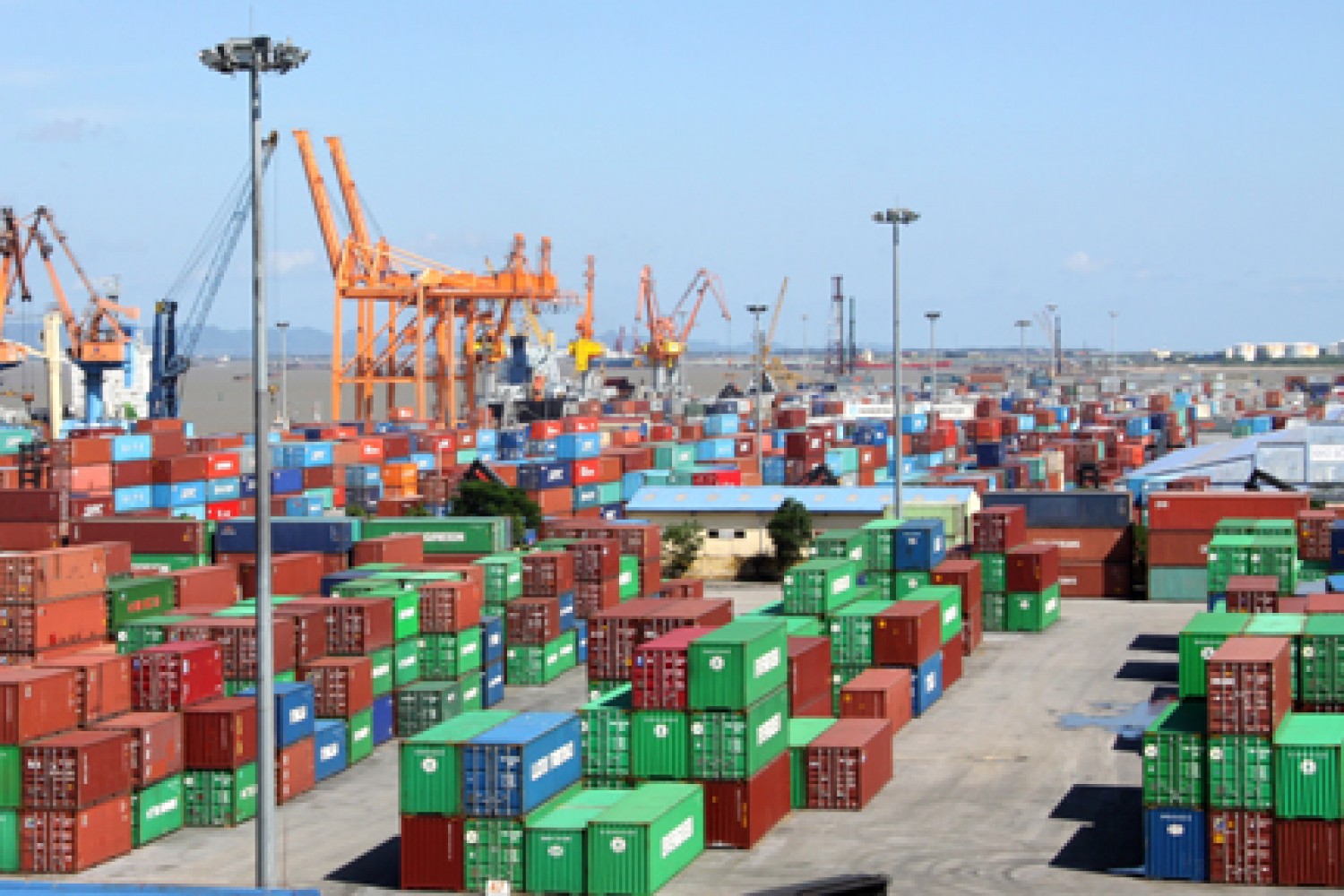
- TPP - Chapter 08 - Technical Barriers to Trade
- 12:10, 11/07/2024
-
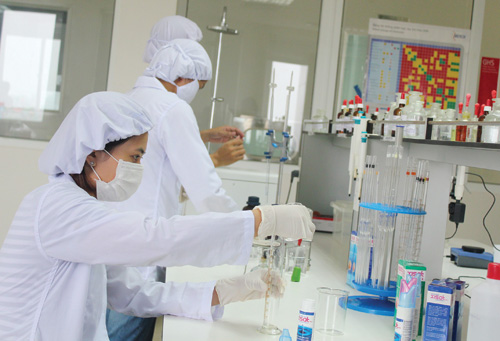
- TPP - Chapter 07 - Sanitary and Phytosanitary ...
- 12:10, 11/07/2024
-
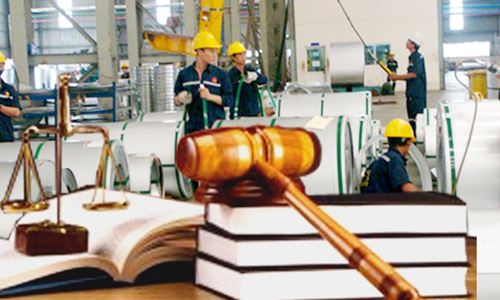
- TPP - Chapter 06 - Trade Remedies
- 12:10, 11/07/2024
-
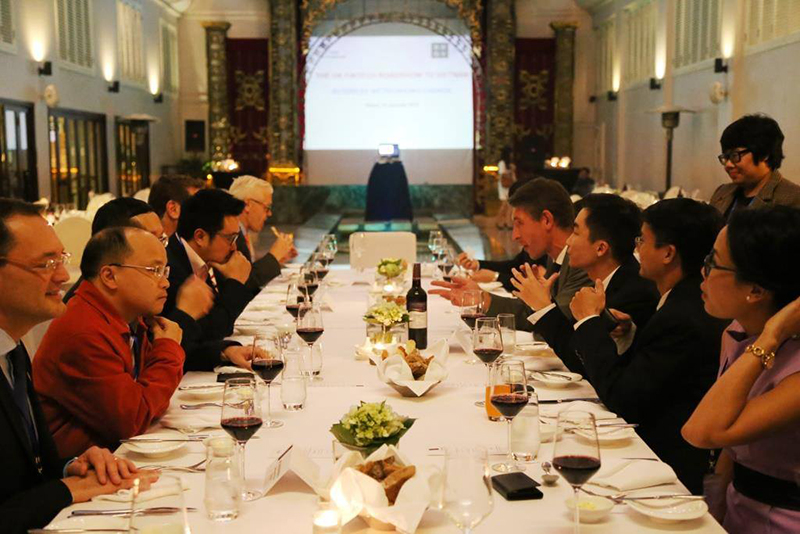
- TPP - Chapter 10 - Cross-Border Trade in Services
- 12:08, 11/07/2024
-

- Notable new policies of Vietnam effective as of ...
- 16:26, 11/04/2025
-
.Medium.png)
- Notable documents of Vietnam in the previous week ...
- 16:21, 11/04/2025
-
.Medium.png)
- Notable documents of Vietnam in the previous week ...
- 16:11, 02/04/2025
-
.Medium.png)
- Notable new policies of Vietnam to be effective ...
- 16:04, 02/04/2025
-
.Medium.png)
- Notable new policies of Vietnam effective from ...
- 14:51, 21/03/2025
 Article table of contents
Article table of contents
